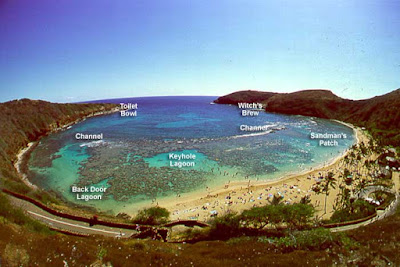Do I Need Rental Car Insurance?

Q: Does it make sense to purchase insurance when I rent a car, or am I already covered?
A: With so many options at the car rental counter, it may be tempting to buy whatever insurance protection is available to safeguard your trip. But many travelers don't realize they're more than likely duplicating coverage they already have.
Not only does a driver's insurance policy protect against theft or damages to a rental vehicle, but often so does a major credit card used to pay the rental fee.
The best thing to do is to call your insurance agent and credit card company in advance. Just because you've used a gold or platinum card in the past, don't assume that it still offers the same protection plans — the cards' insurance benefits can change.
"More often, these prestigious cards are starting to change the advantages they offer to their cardholders, and often times the cardholders are unaware," said Carolyn Gorman, vice president of the Insurance Information Institute in New York. "You could be driving uninsured and not even know it, until you get into a bad accident and have no insurance to cover you. It's a dangerous, scary thing."
If you're not insured through a policy or credit card, the long list of available options can seem intimidating, with dozens of plans that can add as much as an additional $40 a day.
"This is just a classic way for these companies to make more money," said Greg Daugherty, an executive editor at Consumer Reports magazine. "This is usually money that people are spending unnecessarily."
Car rental agreements vary from company to company, but these are a few plans most state laws require them to offer:
• The collision damage waiver, also known as optional vehicle protection or loss damage waiver, can cost as much as $19 per day. This is not technically an insurance product, but instead shifts liability for collision damage from the person renting the car to the car rental company. This also covers for "loss of use," or time a damaged car can't be rented because it is being repaired. Waivers, however, can become void if the accident was caused by driving illegally or on unpaved roads.
• Liability insurance, which provides protection for up to $1 million, costs between $7 and $14 a day. A driver would already have this coverage under their own car insurance.
• Personal accident insurance covers medical and ambulance bills for the driver and passengers in the event of an accident. Opting for this would cost an additional $1 to $5 daily, but health insurance or personal injury protection under auto insurance would already pay for those types of bills.
• Personal effects coverage is not always included in regular insurance plans. This protects against theft of items in the vehicle, such as laptops, golf clubs or cash. The coverage generally costs between $1 and $4 a day. It may be more cost effective, however, to purchase a floating policy under home or renters insurance, so that valuable items are fully protected at home as well as on vacation.
For those who don't own a car but are frequent car renters or borrowers, another option for avoiding repetitive insurance fees is non-owner liability policies. These can cost anywhere from $200 to $500 a year.
There are also limits or special insurance requirements for driving outside of the U.S.
The most important thing to do, said Gorman, is plan ahead.
"The worst is when you are standing at the counter, with a line behind you, and you feel pressured to buy it all because you don't have a sense of what kind of coverage you need and what you don't," she said. "That's when you make bad decisions in a haste."
By ERIN CONROY, AP Business Writer
Tue Feb 26, 2:21 PM ET



